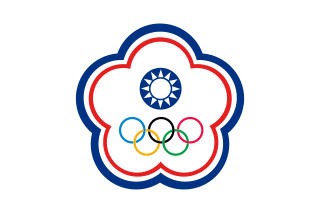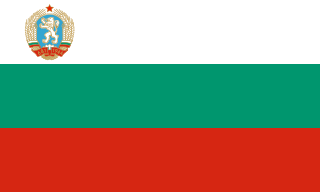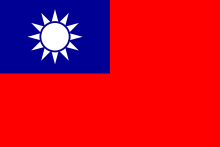
The Winter Olympic Games is a major international multi-sport event held once every four years for sports practiced on snow and ice. The first Winter Olympic Games, the 1924 Winter Olympics, were held in Chamonix, France. The modern Olympic Games were inspired by the ancient Olympic Games, which were held in Olympia, Greece, from 776 BCE to 394 CE. The Baron Pierre de Coubertin of France founded the International Olympic Committee (IOC) 1,500 years later in 1894, leading to the first modern Summer Olympic Games in Athens, Greece in 1896. The IOC is the governing body of the Olympic Movement, with the Olympic Charter defining its structure and authority. The original five Winter Olympic Sports were bobsleigh, curling, ice hockey, Nordic skiing, and skating. The Games were held every four years from 1924 to 1936, interrupted in 1940 and 1944 by World War II, and resumed in 1948. Until 1992, the Summer Olympic Games and the Winter Olympic Games were held in the same year. A decision to change this was made in 1986, when during the 91st International Olympic Committee session, IOC members decided to alternate the Summer Olympic Games and the Winter Olympic Games on separate four-year cycles in even-numbered years. Also, at that same congress it was decided that 1992 Winter Olympics would be the last to be held in the same year as the Summer Games and that to change the rotation, the games that would be held in 1996 would be brought forward by two years, being scheduled to 1994. After those games, the next were to be held in 1998 when the four-year Olympic Cycle resumed.
The 1972 Winter Olympics, officially the XI Olympic Winter Games and commonly known as Sapporo 1972, were a winter multi-sport event held from February 3 to 13, 1972, in Sapporo, Hokkaido Prefecture, Japan. It was the first Winter Olympic Games to take place outside Europe and North America.

The 1976 Winter Olympics, officially known as the XII Olympic Winter Games and commonly known as Innsbruck 1976, were a winter multi-sport event celebrated in Innsbruck, Austria, from February 4 to 15, 1976. The games were awarded to Innsbruck after Denver, the original host city, withdrew in 1972. This was the second time the Tyrolean capital had hosted the Winter Olympics, having first done so in 1964.
The 1972 Winter Olympics, officially known as the XI Olympic Winter Games, was a winter multi-sport event held in Sapporo, Japan, from 3 to 13 February 1972. A total of 1,006 athletes representing 35 National Olympic Committees (NOCs) participated in 35 events from 10 different sports and disciplines.

Alpine skiing at the 1972 Winter Olympics consisted of six events, held February 5–13 near Sapporo, Japan. The downhills were held at Mount Eniwa, and the four technical events at Teine.

Chinese Taipei sent a delegation to compete at the 2006 Winter Olympics in Turin, Italy from 10–26 February 2006. Although the nation is known as Taiwan or the Republic of China, the International Olympic Committee mandates that the Chinese Taipei Olympic Committee flag and name is used, and not the flag of Taiwan, as per the Nagoya Resolution. This was Chinese Taipei's seventh time participating in the Winter Olympic Games. The Chinese Taipei delegation consisted of a single athlete, luger Ma Chih-hung. He finished 28th in the men's singles.
Robert A. Kasting is a Canadian former competition swimmer who specialized in freestyle and butterfly events. Kasting represented Canada at the 1972 Summer Olympics in Munich, Germany, where he won the bronze medal in the men's 4x100-metre medley relay, together with Canadian teammates Erik Fish, Bruce Robertson and William Mahony.

Belgium competed at the 1972 Winter Olympics in Sapporo, Japan.

The People's Republic of China competed at the Winter Olympic Games for the first time at the 1980 Winter Olympics in Lake Placid, United States.

The People's Republic of China competed at the 1988 Winter Olympics in Calgary, Alberta, Canada.

The People's Republic of China competed at the 1994 Winter Olympics in Lillehammer, Norway.

Spain competed at the 1972 Winter Olympics in Sapporo, Japan.

Bulgaria competed at the 1972 Winter Olympics in Sapporo, Japan.

The Philippines competed in the Winter Olympic Games for the first time at the 1972 Winter Olympics in Sapporo, Japan with two athletes who competed in alpine skiing. The country was also the first tropical nation and Southeast Asian country to feature in the Winter Olympics.

Due to the political status of Taiwan, the Republic of China (ROC) competed as Chinese Taipei at the 2002 Winter Olympics in Salt Lake City, United States. The International Olympic Committee mandates that the Chinese Taipei Olympic Committee flag is used, and not the flag of the Republic of China.

Due to the political status of Taiwan, the Republic of China (ROC) competed as Chinese Taipei at the 1998 Winter Olympics in Nagano, Japan. The International Olympic Committee mandates that the Chinese Taipei Olympic Committee flag is used, and not the flag of the Republic of China.

Due to the political status of Taiwan, the Republic of China (ROC) competed as Chinese Taipei at the 1992 Winter Olympics in Albertville, France. The International Olympic Committee mandates that the Chinese Taipei Olympic Committee flag is used, and not the flag of the Republic of China.

Due to the political status of Taiwan, the Republic of China (ROC) competed as Chinese Taipei (中華臺北隊) at the 1988 Winter Olympics in Calgary, Alberta, Canada. The International Olympic Committee mandates that the Chinese Taipei Olympic Committee flag is used, and not the flag of the Republic of China.

The Republic of China (ROC) had always competed in the Olympic Games under that name except for the second time under the name of Chinese Taipei, and the first Winter Games, at the 1984 Winter Olympics in Sarajevo, Yugoslavia. The change in name was a result of the Nagoya Resolution, adopted by the International Olympic Committee (IOC) in 1979 due to objections raised in the 1970s by the People's Republic of China (PRC) over the political status of Taiwan. The IOC restrictions over the ROC name had led the ROC to boycott the Summer Games of 1976 and 1980; the PRC had boycotted all the previous Olympic Games.
For the 1972 Winter Olympics in Sapporo, Japan, a total of twelve sports venues were used. A thirteenth venue which was a reserved luge course was constructed, but never used in actual competition. Construction on all of the venues used took place between 1968 and early 1971 in time for the test events. The Tsuskisamu Indoor Skating Rink was not completed until late 1971 or early 1972 because the number of teams scheduled to compete at the 1972 Games was not known. At the actual luge venue used, a malfunctioning starting gate during the first run led to the results being cancelled and rerun being ordered. The results of this event led to the only tie in Olympic luge history. The ski jumps at Miyanomori and Okurayama served as host venues for the FIS Nordic World Ski Championships thirty-five years later.









